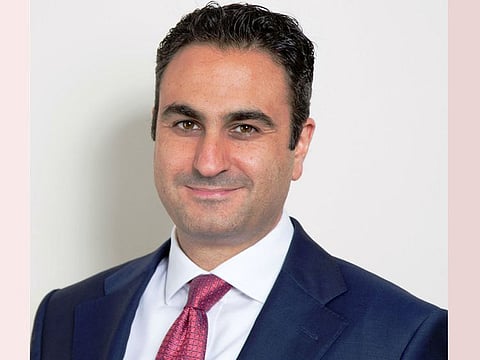Kuwaiti-owned Menzies Aviation wants to make a push into Saudi Arabia, UAE
One of world’s biggest aviation services firms, Menzies is part of Kuwait’s Agility group

Dubai: One of the world’s biggest aviation services companies, Menzies, is getting ready to make a breakthrough into the UAE and Saudi Arabia, two of the busiest markets for the industry. And also among the most competitive.
This is not lost on UK-headquartered Menzies Aviation’s Chairman, Hassan El-Houry, who is gearing for an “aggressive’ entry into some of the Gulf markets.
After three years of rapid double-digit growth, Menzies Aviation (Menzies) is on track to surpass previous records this year as it expands its services to multiple new markets worldwide, said company Chairman Hassan El-Houry.
He said that the company has “aggressive” growth plans for the GCC region, including Saudi Arabia and the UAE, in the next five years. “We are already operating in Kuwait, one of our largest operations,” said El-Houry.
“I believe that the discussion about the GCC will be entirely different in five years,” said El-Houry. “Saudi Arabia aims to triple its number of passengers to 250 million by 2030. They plan to invest $100 billion in aviation infrastructure to achieve this. We want to be a part of that - and will be.” (Menzies has partnered with Saudi Arabia’s Al Tanfeethi, a supplier of high-end travel services in KSA airports, to provide its newly rebranded Pearl Meet and Assist (lounge) services.)
Menzies Aviation already has a sizeable operational presence in Kuwait. Agility, the Kuwaiti entity, acquired the UK-based John Menzies plc and combined its business with NAS to create Menzies Aviation in 2022. Menzies is considered the world’s largest aviation services company, operating at over 295 airports across 65 plus countries. With 50,000 employees, the company handles more than 4.5 million flights and over 2 million ton of cargo annually. It also operates as an independent aviation fueling company.
In competition with the Big 5
In the UAE, Menzies Aviation would have to compete against Emirates Group-owned dnata, which had a net profit of $387 million in 2023-24 and currently provides aviation services to airports in 52 countries.
El-Houry said: “There are about five major competitors, along with some regional leaders, and then around 100 to 200 smaller companies that are country- or airport-specific.”
“We like to think of ourselves competing with the Top 5 major players and some regional players. This is because we don’t only compete on price; we also compete on safety, security, and quality. If an airline is looking for the cheapest option, we may not always be the most cost-effective choice, and that’s fine. Airlines that value safety, security, and quality choose us.”
New markets
Recently, Menzies Aviation launched operations in Spain, Portugal, Hong Kong, Jamaica, Peru, and Panama. The company outbid competitors and won operational rights for seven airports in Spain.
“We are region- or country-agnostic,” said El-Houry, who was formely CEO at National Aviation Services.
“We look at each opportunity individually. And, you know, assess whether it adds value to our company; if it adds value to our company, we pursue it. If not, we walk away,” he said.
Exceeding expectation
The company reported $2.2 billion in for 2023, an increase of 10.7 per cent yearly. For 2024, El-Houry is confident that the company will ‘exceed the 10 per cent growth in passenger numbers, flights, and revenue earned’.
“I am confident that our recent expansions into locations like Spain, Portugal, and Hong Kong enable us to outperform the global average.”
The company is seeing rapid expansion in Southeast Asia, among the last markets to open up post-pandemic.
“Much of the growth we’re seeing in 2024, projected at 11 per cent over 2023, is driven by Southeast Asia, along with North America, South America, Europe, and the Middle East,” he added.
Last year, the Middle East had already reached pre-Covid levels, but Southeast Asia was lagging and holding back global numbers.
Sign up for the Daily Briefing
Get the latest news and updates straight to your inbox



